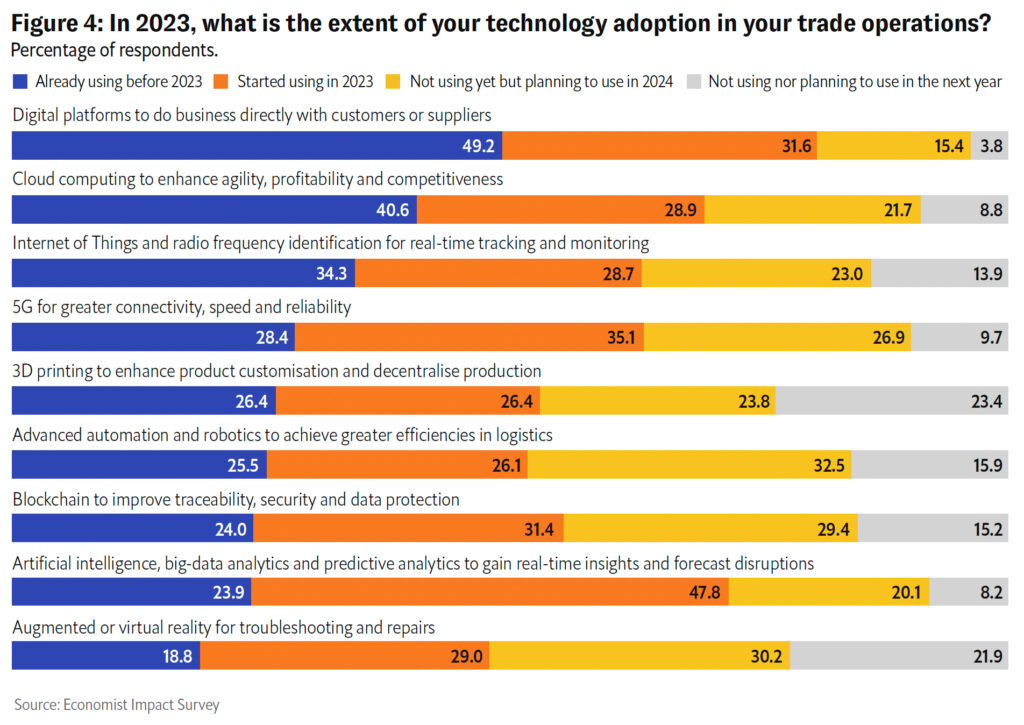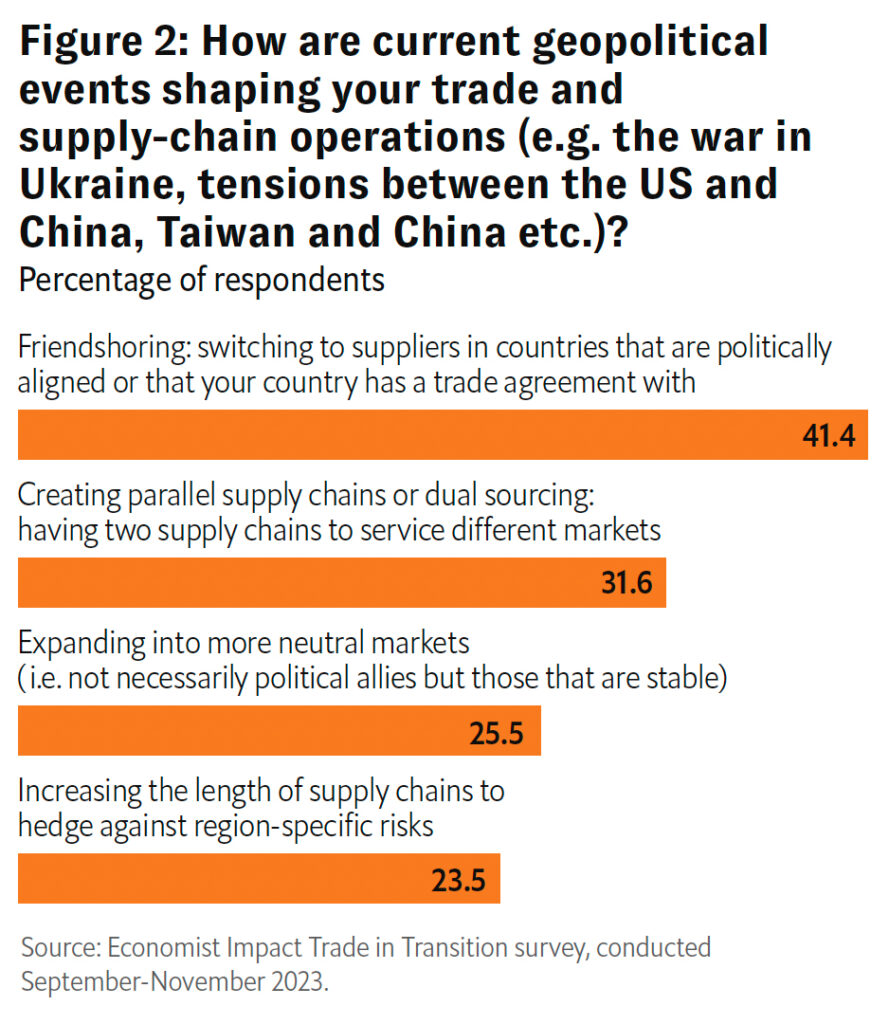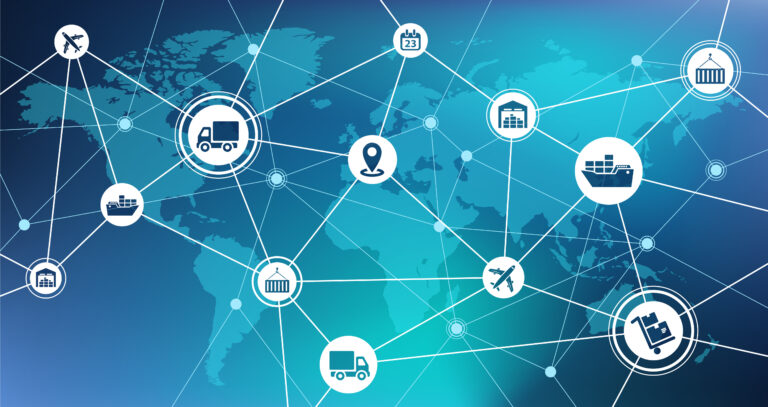A new report from Economist Impact and DP World has revealed that European businesses are deploying innovation and technology in supply chains to counter a shifting geopolitical and trade landscape.
Despite the challenging circumstances facing logistics companies, the Trade in Transition 2024 report suggests European businesses have an optimistic outlook for 2024, foreseeing an expansion in both imports and exports. That optimism is due to executives’ belief that technology will transform the efficiency and resilience of supply chains in tandem with agile supply chain strategies.

The annual study captures the perspectives of trade experts and senior executives globally. The 2024 edition found technologies that improve supply chain efficacy and resilience to be the main source of optimism for a third of European business leaders who were asked to assess the future of global trade. Other key highlights include:
- Widespread adoption of AI: 33% are using AI to forecast demand and 36% to optimize inventory levels;
- Future technologies: In the coming year, businesses plan to incorporate advanced automation (33%), augmented or virtual reality (30%), 3D printing and blockchain technology (24% and 29% respectively) to enhance efficiency, traceability, security and data protection;
- Strategic supply chain adaptation: European businesses are strategically navigating heightened geopolitical risk by employing friendshoring (41%), establishing parallel supply chains (32%) and expanding into neutral markets (26%);
- Consolidation trend: A third of businesses are opting for fewer suppliers, marking a 22% increase from the previous year. Diversification remains the most popular approach to geographical reconfiguration, with 35% of companies using it to build resilient supply chains;
- Trade hurdles in 2024: Businesses face significant challenges in exporting and importing due to transportation expenses (25%), shortages of vital production inputs (21%), and concerns about rising inflation and economic unpredictability (28%). Uncertainties surrounding tariffs also remain a substantial concern, with 21% expressing apprehension regarding exports and 20% concerning imports.
Rashid Abdulla, CEO and MD for Europe at DP World, said, “In an evolving geopolitical and economic landscape, European companies are acknowledging the importance of technology in strengthening the efficacy of supply chains, as well as the ability to anticipate disruptions.
“This shift toward emerging technologies is not just a response to challenges, it’s a narrative of resilience, adaptability and a steadfast commitment to shaping a future where innovation is the bedrock of success. Critical to this will be navigating the developing regulations of the EU tech industry.”
To view the full report, please click here.



